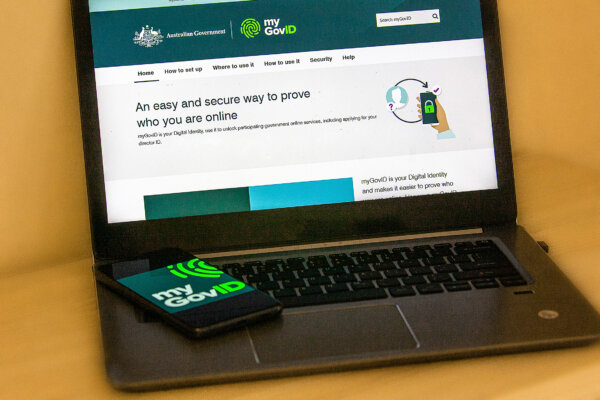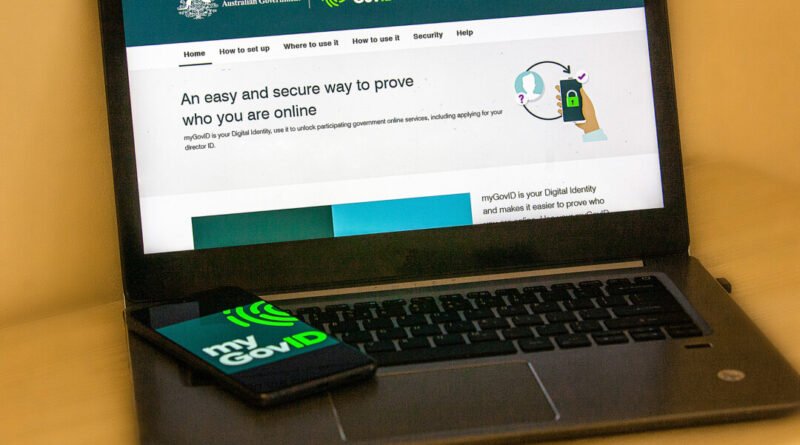Senators Consider Making Voluntary Digital ID Mandatory in Implementation

The bill has raised concerns about the national digital ID not being truly voluntary, according to two Coalition senators.
These concerns were highlighted in a report published in February by the senate standing committees on economics regarding the Digital ID bill 2023 and the Digital ID (transitional and consequential provisions) Bill 2023.
The digital ID bill, introduced on Nov. 30, 2023, seeks to establish an accreditation scheme for entities providing digital ID services and expand the national digital ID into an economy-wide system.
In September 2023, Finance Minister Katy Gallagher described the digital ID as “an easy way of verifying who you are online, against existing government-held identity documents without having to hand over any physical information.”
She emphasized that the bill would be “secure, convenient, voluntary, and inclusive.”
Ms. Gallagher stated, “An essential aspect of Digital ID is that it continues to be voluntary for individuals accessing government services.”
“Government will need to continue to provide alternate channels for people to access services and we are committed to doing just that.”
‘Creeping Expansion’
However, National Senator Matt Canavan and ID bill (2023) and Liberal Senator Gerard Rennick argued that the government’s bill provided “no protection against the creeping expansion of the digital ID requirements.”
They noted that under the bill, businesses can require the use of a digital ID if they deem it “appropriate.”
“If the government is serious about claiming that its digital ID scheme is ‘voluntary,’ it is not clear why it cannot limit exceptions to its voluntary standard to a narrow, prescribed list of circumstances.”
“Even for those businesses that do not receive an exemption, the bill provides no requirement for an organization to provide non-digital ID services on a similar basis.”
They outlined a scenario where a bank could make it difficult for a customer seeking to use traditional identification documents to open an account by, for example, making them wait weeks for an appointment.
“There are no protections in the bill that would stop a business from making life difficult for its customers that choose a non-digital ID option.”
The Bill seeks to provide some examples of where a digital ID may be required to be mandatory. But there is no limitation on the regulator’s powers aside from a vague and open-ended condition that it can only be made mandatory in “appropriate” circumstances.
Similar concerns were also expressed by Digital Rights Watch.
The organization said in its submission that in situations where digital ID is mandatory, it would “essentially cut off a proportion of the population from accessing those services.”
Meanwhile, the Australian Retail Credit Association (ARCA) noted that exemptions could result in digital exclusion as the bill doesn’t prevent private companies from excluding the acceptance of traditional forms of ID.
“Some businesses might choose only to accept digital ID as a way to minimize their risk of collecting data on individuals, or because it is a more reliable form of identity,” ARCA said.
Committee’s Comment
The committee acknowledged the concerns raised by the two Coalition senators.
They noted that the digital ID will fail if it lacked public credibility surrounding its voluntary status.
But the committee also observed that the bill struck the “right balance between facilitating businesses to participate in the system, while ensuring that individuals have a free, voluntary choice whether they choose to obtain or when to use a digital ID.”
CyberCX welcomed the bills as a “positive development for government, citizens, and industry.”
“From a cybersecurity perspective, a voluntary system that reduces the need for Australians to repeatedly provide identity documents to different organizations reduces the threat exposure across Australia’s digital economy,” they said in their submission.




